
Weight loss medications are pharmaceutical drugs or prescription medications that are designed to help individuals lose weight. These medications work in various ways to either reduce appetite, decrease absorption of nutrients, or increase metabolism. It’s important to note that these medications are typically prescribed in conjunction with a comprehensive weight loss plan that includes a balanced diet and regular physical activity.
What are the different types of weight loss medications available?
Several types of weight loss medications are available, each with its own mechanism of action. Here are some common types:
- Phentermine: This is an appetite suppressant that works by affecting neurotransmitters to reduce feelings of hunger. It is often prescribed for short-term use.
- Orlistat: Orlistat is a lipase inhibitor that decreases the absorption of dietary fat by blocking the action of lipase enzymes. It is available in both prescription and over-the-counter forms.
- Lorcaserin: Lorcaserin is a serotonin receptor agonist that helps control appetite by affecting neurotransmitters. It was approved for weight loss, but its use has been restricted or withdrawn in some countries due to concerns about potential cancer risks.
- Phentermine/Topiramate: This is a combination medication that includes an appetite suppressant (phentermine) and an antiepileptic drug (topiramate). It is thought to work on the central nervous system to reduce appetite and increase feelings of fullness.
- Naltrexone/Bupropion: This combination medication affects neurotransmitters involved in appetite and reward pathways. It may help reduce food cravings and increase metabolism.
- Contrave (Naltrexone/Bupropion): This combination medication combines naltrexone (an opioid antagonist) with bupropion (an antidepressant). It is believed to reduce food cravings and increase energy expenditure.
Who is a suitable candidate for weight loss medications?
Weight loss medications are typically prescribed to individuals who meet specific criteria and have struggled to lose weight through lifestyle changes alone. The decision to use weight loss medications is made by healthcare professionals based on an individual’s health status, risk factors, and response to other weight loss strategies. Here are some factors that might make someone a suitable candidate for weight loss medications:
- Body Mass Index (BMI): Weight loss medications are often recommended for individuals with a BMI of 30 or higher, indicating obesity, or for those with a BMI of 27 or higher who have obesity-related health conditions (such as diabetes or high blood pressure).
- Weight-Related Health Issues: Individuals with obesity-related health issues, such as type 2 diabetes, hypertension, or sleep apnea, may be considered suitable candidates for weight loss medications. Addressing obesity can have positive effects on these associated health conditions.
- Lifestyle Interventions Ineffectiveness: Candidates for weight loss medications have usually attempted and failed to achieve significant weight loss through lifestyle modifications, including dietary changes, increased physical activity, and behavioral interventions.
- Comprehensive Weight Loss Plan: Weight loss medications are typically prescribed as part of a comprehensive weight loss plan that includes not only medication but also a healthy, balanced diet and regular physical activity.
- Absence of Contradictions: Candidates should not have contraindications or significant health issues that would make the use of weight loss medications unsafe. These medications may have potential side effects and interactions, so a thorough medical evaluation is essential.
What are the side effects of weight loss medications?
Weight loss medications can have various side effects, and their severity can vary from person to person. It’s important for individuals considering or using these medications to be aware of potential side effects and to discuss any concerns with their healthcare provider. Here are common side effects associated with some weight loss medications:
- Phentermine:
- Increased heart rate
- Increased blood pressure
- Insomnia
- Dry mouth
- Dizziness
- Irritability
- Orlistat:
- Gastrointestinal issues such as oily stools, flatulence, and diarrhea
- Abdominal pain
- Headache
- Lorcaserin:
- Headache
- Dizziness
- Fatigue
- Nausea
- Constipation
- Phentermine/Topiramate:
- Increased heart rate
- Numbness or tingling in extremities
- Insomnia
- Dizziness
- Changes in taste
- Naltrexone/Bupropion:
- Nausea
- Constipation
- Headache
- Insomnia
- Increased blood pressure
What lifestyle changes should I make while taking weight loss medications?
While weight loss medications can be a helpful tool in achieving and maintaining weight loss, they are most effective when combined with healthy lifestyle changes. Here are some important lifestyle changes to consider while taking weight loss medications:
- Healthy Diet:
- Adopt a balanced and nutritious diet that includes a variety of fruits, vegetables, whole grains, lean proteins, and healthy fats.
- Control portion sizes to manage calorie intake effectively.
- Limit the consumption of processed foods, sugary beverages, and high-calorie snacks.
- Regular Physical Activity:
- Engage in regular exercise, incorporating both aerobic activities (such as walking, jogging, or swimming) and strength training exercises.
- Aim for at least 150 minutes of moderate-intensity aerobic activity or 75 minutes of vigorous-intensity aerobic activity per week, along with muscle-strengthening activities on two or more days per week.
- Behavioral Changes:
- Develop healthy eating habits, such as mindful eating and paying attention to hunger and fullness cues.
- Identify and address emotional triggers for overeating or unhealthy food choices.
- Establish a consistent eating schedule and avoid skipping meals.
- Hydration:
- Drink an adequate amount of water throughout the day. Sometimes, thirst can be mistaken for hunger.
- Regular Monitoring:
- Keep track of your food intake, physical activity, and progress toward weight loss goals.
- Attend regular follow-up appointments with your healthcare provider to monitor your response to the medication and make any necessary adjustments.
- Sleep Hygiene:
- Prioritize getting sufficient and quality sleep each night. Lack of sleep can impact metabolism and increase cravings for unhealthy foods.
- Stress Management:
- Practice stress-reducing techniques such as meditation, deep breathing, or yoga.
- Manage stress to prevent emotional eating or other unhealthy coping mechanisms.
- Medical Monitoring:
- Follow your healthcare provider’s recommendations for regular check-ups, blood tests, and monitoring of any potential side effects of the weight loss medication.
How much weight can I expect to lose with weight loss medications?
he amount of weight a person can expect to lose with weight loss medications varies widely and is influenced by several factors, including individual characteristics, the specific medication used, adherence to lifestyle changes, and overall health. It’s important to approach weight loss as a gradual process, and expectations should be realistic.
On average, weight loss medications may lead to modest weight loss compared to lifestyle changes alone. The amount of weight loss can vary, but it’s generally in the range of 5% to 10% of total body weight over a certain period, such as six months to a year. Some individuals may experience more significant weight loss, while others may see less.
Factors influencing weight loss with medications include:
- Individual Response: People respond differently to medications. Some individuals may have a more robust response to weight loss medications than others.
- Lifestyle Changes: Incorporating healthy lifestyle changes, such as a balanced diet and regular exercise, alongside medication use can enhance the effectiveness of weight loss efforts.
- Medication Type: Different weight loss medications have varying levels of effectiveness. The choice of medication is often based on an individual’s health status, medical history, and other factors.
- Duration of Use: The duration for which a person uses weight loss medications can impact the overall weight loss achieved. Some medications are prescribed for short-term use, while others may be used for a more extended period.
How can we maintain our weight?
Maintaining weight involves adopting a balanced and sustainable approach to nutrition, physical activity, and lifestyle. Here are some strategies to help you maintain your weight:
- Healthy Eating Habits:
- Continue to follow a balanced diet that includes a variety of fruits, vegetables, whole grains, lean proteins, and healthy fats.
- Be mindful of portion sizes to avoid overeating. Use smaller plates to help with portion control.
- Regular Physical Activity:
- Engage in regular physical activity, combining both aerobic exercises (e.g., walking, jogging, swimming) and strength training.
- Aim for at least 150 minutes of moderate-intensity aerobic activity or 75 minutes of vigorous-intensity aerobic activity per week, along with muscle-strengthening activities on two or more days per week.
- Lifestyle Changes:
- Establish and maintain healthy lifestyle habits, including adequate sleep, stress management, and proper hydration.
- Manage stress through relaxation techniques, mindfulness, or activities you find enjoyable.
- Monitor Your Weight:
- Weigh yourself regularly to stay aware of any fluctuations. This can help you catch changes early and take corrective action if needed.
- Mindful Eating:
- Practice mindful eating by paying attention to hunger and fullness cues. Avoid distracted eating, such as while watching TV or using electronic devices.
- Balanced Meals and Snacks:
- Plan and prepare balanced meals and snacks to prevent unplanned, unhealthy food choices.
- Stay Hydrated:
- Drink plenty of water throughout the day. Sometimes, the body can confuse thirst with hunger.
- Set Realistic Goals:
- Set realistic and sustainable goals for weight maintenance. Avoid extreme diets or restrictive eating patterns.
- Social Support:
- Seek support from friends, family, or a support group to help you stay accountable and motivated.
- Regular Check-Ups:
- Schedule regular check-ups with your healthcare provider to monitor your overall health and discuss any concerns related to weight maintenance.
- Adapt to Changes:
- Be flexible and adapt your habits to changing circumstances. Life events, such as holidays or vacations, may require adjustments to your routine.

Fat absorption inhibitors are a type of weight loss medication that works by reducing the absorption of dietary fat in the digestive tract. The primary purpose of these medications is to help individuals lose weight by decreasing the number of calories absorbed from dietary fats. Orlistat is a commonly used fat absorption inhibitor.
Here’s how fat absorption inhibitors work and their role in weight loss:
- Inhibition of Lipase Enzymes: Fat absorption inhibitors, such as orlistat, target lipase enzymes. Lipases are enzymes that play a crucial role in breaking down dietary fats into smaller molecules that can be absorbed by the intestines. By inhibiting the action of lipase enzymes, these medications reduce the breakdown of fats into absorbable forms.
- Reduction in Caloric Absorption: By interfering with the digestion of dietary fats, fat absorption inhibitors lead to a decrease in the absorption of fat-derived calories. This results in a net reduction in the total number of calories that the body absorbs from the diet.
- Increased Fat Excretion: Instead of being absorbed, a portion of the dietary fat passes through the digestive system without being broken down and is excreted in the feces. This process can contribute to weight loss by reducing the caloric content of the diet.
How do weight loss medications interact with diet and exercise?
Weight loss medications can interact with diet and exercise in a synergistic manner, enhancing the effectiveness of a comprehensive weight loss plan. When used in conjunction with healthy lifestyle choices, such as a balanced diet and regular physical activity, weight loss medications can provide additional support. Here’s how these elements can work together:
- Appetite Control and Caloric Intake:
- Weight loss medications that suppress appetite, such as phentermine, can help individuals adhere to a reduced-calorie diet by reducing feelings of hunger. This makes it easier for individuals to control their portion sizes and make healthier food choices.
- Increased Physical Activity:
- Weight loss medications that boost energy levels or increase metabolism, such as certain stimulants, may encourage individuals to engage in more physical activity. Increased physical activity contributes to additional calorie expenditure and supports overall weight loss efforts.
- Behavioral Changes:
- Medications can support behavioral changes, making it easier for individuals to adopt and maintain healthier habits. This may include reducing emotional eating, avoiding overeating in response to stress, and improving adherence to dietary and exercise recommendations.
- Enhanced Weight Loss Results:
- When weight loss medications are used alongside a balanced diet and regular exercise, individuals may experience more significant weight loss compared to relying on lifestyle changes alone. This combination approach can be particularly beneficial for those who have struggled to achieve weight loss with diet and exercise alone.
- Adherence to Lifestyle Changes:
- Weight loss medications can serve as a tool to help individuals adhere to lifestyle changes by providing support during the initial stages of weight loss. This can be especially helpful in building confidence and motivation.

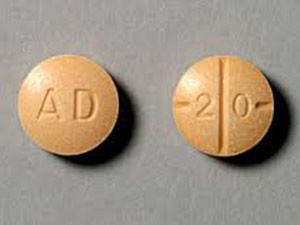


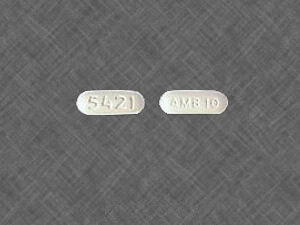









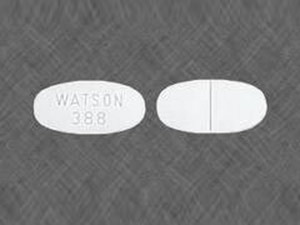

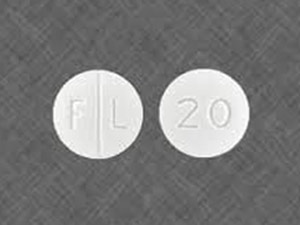

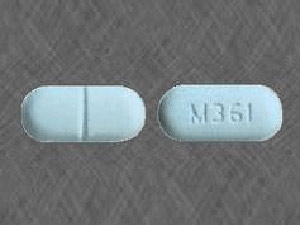

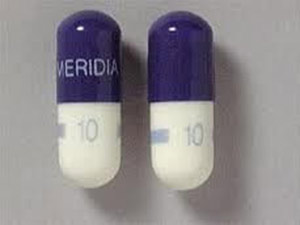

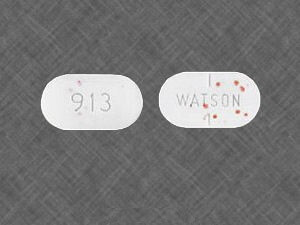




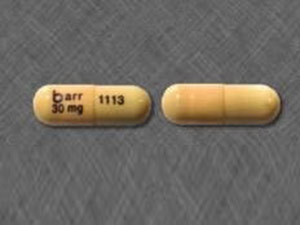







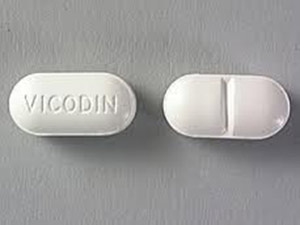


Leave a Reply